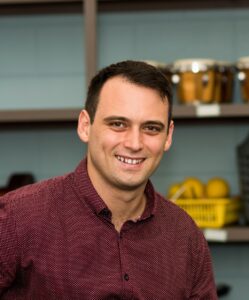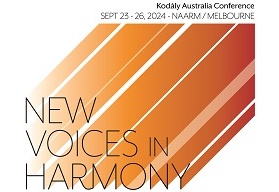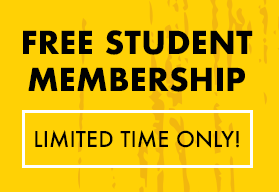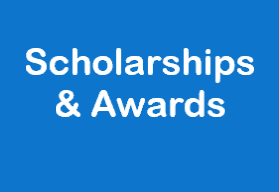John Goulter
2022 Award Recipient for Excellence in Australian Kodály-inspired Music Education: Including Australian Aboriginal and Torres Strait Islander Peoples’ Perspectives

Response to Selection Criteria
Over the last 4 years, I have completed participatory action research and critical service-learning projects within my school’s context. This arose due to an observed lack of engagement and participation from First Nations students within the school context. This led to a range of research surrounding Australian First Nations student education. I reflected and saw that there was no authentic and positive representation of First Nations students in the classroom. I went from that point to develop rapport with various First Nations community groups and elders to develop my own understanding of the culture and develop a culturally responsive repertoire of songs to use in the classroom.
I implemented this repertoire into the year 7 program initially as this was a mandatory class for all students. I surveyed two years’ worth of year 7 students to find out their feelings in regard to First Nations music, our teaching of it, and their desire to learn it. Overall students indicated that the music helped them to participate in the classroom setting, they enjoyed singing and learning the music and the history behind it and indicated that they were happy to see their culture represented or happy to be able to connect with their First Nations friends through music.
I have continued to work with First Nations community groups and elders to provide other channels of representation outside of the music classroom. This includes inviting elders into the school community to teach students songs, dance, and other cultural arts-based activities.
Overall, this has increased the amount of positive and authentic representation within the school community and within the music classroom. Overall, there is a correlated 900% increase between First Nations students electing to study music from 2018 to 2022 since the implementation of culturally responsive teaching materials and pedagogies in response to this project. It has also given First Nations students more confidence in performing on assemblies and are awards nights. I have also used feedback from First Nations community members and students to run peer teaching session aimed to improve my music teachers’ ability to teach in a culturally responsive manner.
This research has led to two presentations at the International Kodály Society Conferences and the publication of academic papers in the International Kodály Society Bulletin. The project is ongoing with its current focus on a yarning interview style to share data with First Nations community members, staff, and parents to gain an insight into their thoughts regarding this project and First Nations education.
This project has allowed me to use feedback and reflection to improve my own teaching practice to allow for teaching of musical excellence. Inspired by the Kodály idea of using the mother tongue to teach students music and working from the unknown to know I have contributed to the Australian inspired Kodály teaching practice. Through the publication of the project’s methods and analysis of student data I have contributed to other Kodály teachers understanding of the literature and methods used in First Nations research and teaching methods. I have also served as a model for other early careers teachers by engaging in research practice which is not attached to a tertiary qualification but of the sake of my students and teaching practice.
Awards for Excellence
Latest News
2024 Award Recipients Announcement
The Kodály Australia National Council were delighted to receive impressive applications and nominations for the 2024 Awards for Excellence in Australian Kodály-inspired Music Education. The high number of peer nominations across each of the five categories is also a testament …
Read more
Research Invitation: Teacher Growth and Development from Australian Kodály Certificate Courses
Kodály Australia is pleased to support the research project, Teacher Growth and Development from Australian Kodály Certificate Courses, conducted by Dr Jason Goopy (chief investigator) and Jason Boron at Edith Cowan University. This study aims to investigate teachers’ motivation to …
Read more
2024 Awards for Excellence in Kodály-Inspired Music Education
This is a reminder that nominations for the 2024 Awards for Excellence in Australian Kodály-inspired Music Education close this Sunday, 31 March 2024. I believe wholeheartedly that our members are the strength of our community. These awards provide a significant …
Read more
IKS Scholarship
The International Kodály Society (IKS) offers fee waiver scholarships to support participation in Kodály-inspired professional development. The closing date for the next round is 1 May 2024. Full information including selection criteria and eligibility is available on the IKS website. …
Read more
Membership Database Upgrade – Complete
Kodály Australia has now completed upgrading our membership database to our new GameDay service. All members will receive a reminder via email to renew their membership one month prior to their renewal date. Members can renew their membership online and …
Read more


